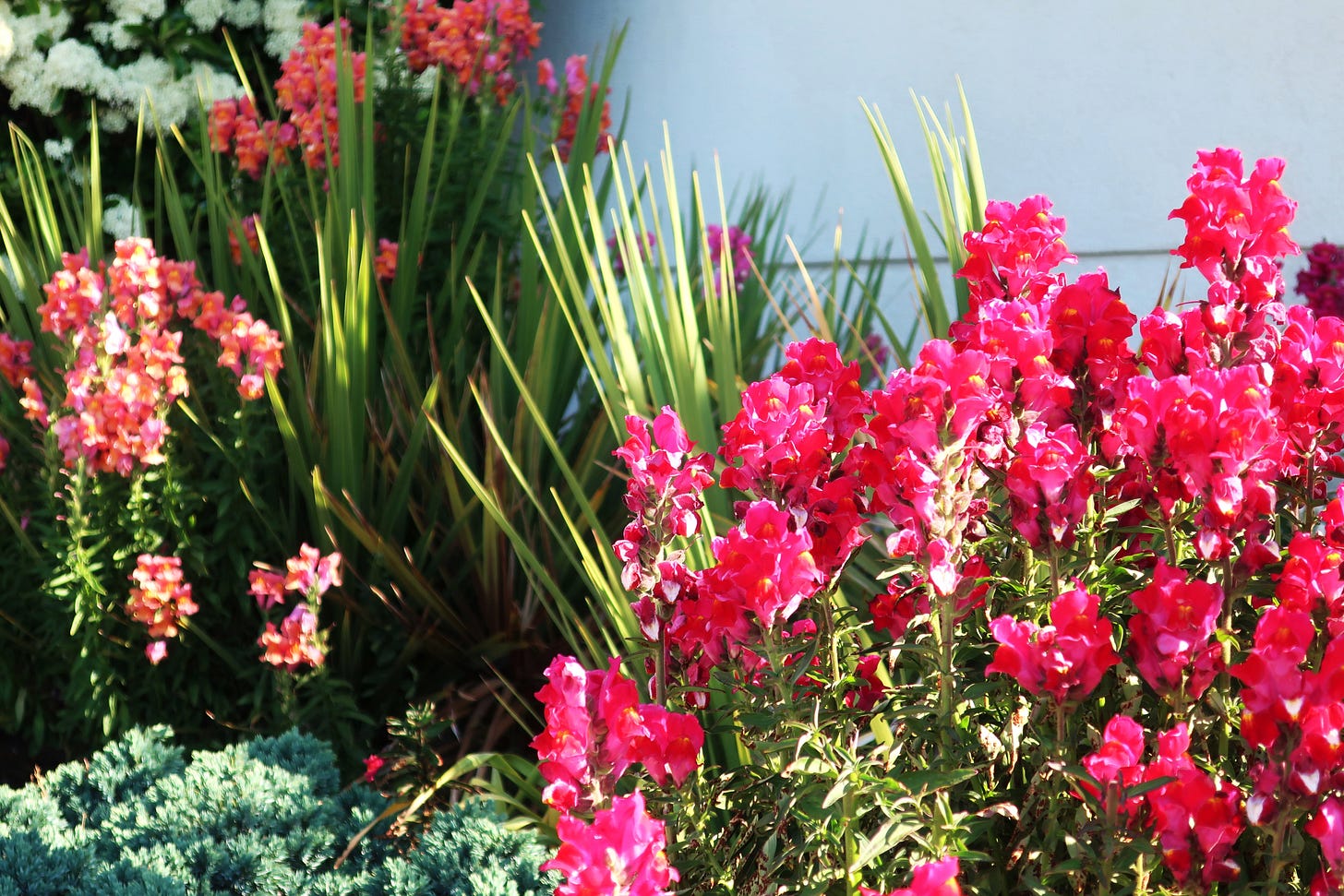Footnotes to a Conversation, June 3, 2023
“Attention is the rarest and purest form of generosity.” – Simone Weil
Wild Encounters
I was sitting quietly on my balcony the other evening when a crow got very loud and angry and started flying straight for my balcony. S/He didn’t feel comfortable – fortunately! – coming under the overhang, but s/he must have felt that I was way too close to her/his babies. It hasn’t happened again so I’m assuming baby has fledged and is, I hope, doing okay. June Hunter in Vancouver follows (and photographs) crows much more closely than I do. Do take a look at her blog. [Urban Nature Enthusiast]
I often see great blue herons in the bay below my building. They’re usually standing very still in shallow water, so I was surprised to see one heading up the beach and away from the water. I followed its line of sight and realized it had its eye on a small brown rodent busily eating. The heron took a couple of careful steps forward but then decided to err on the side of caution and headed back to the water. A fish bite would certainly be less painful than a rodent bite.
Cloth Cultures
The Lancashire Textile Gallery’s website is a treasure trove of images and information. We take cotton clothing for granted nowadays, and yet its history blends industrialization in England with cotton harvested by slaves in the American South and colonialism in India. The stylized patterns were often based on Indian, Persian, Japanese, or Eastern art and then adapted for European tastes. Colourful backgrounds were popular in Europe, while the British preferred cream or off-white backgrounds. Dying the fabric before the introduction of synthetic dyes could be a time-consuming, difficult process. Turkey red required sheep dung and rancid oil. The design on Nigerian adire cloth was similar to batik but using cassava starch as a resist instead of wax. [Lancashire Textile Gallery]
Old Bones & Root Vegetables
A small group of market gardeners are abandoning popular summer crops such as tomatoes, peppers, and zucchini for cool-weather crops that can be stored and sold in the winter. In response to rising summer temperatures, aging bodies, and long work days, the farmers are switching to potatoes, onions, and squash. Farmers say “they’re able to work fewer grueling hours and in less extreme temperatures, spend more time with their families, and sell their produce with less competition.” Produce can often be sold in bulk to be stored by customers. [Civil Eats]
A Twisted Tale of Family & Politics
I’ve just finished reading A Quiet Death in Italy by Tom Benjamin. Set in Bologna, the book explores the lust, power, and authority that connect local politicians, police, and investigators. Benjamin breathes life into what could have been a rather sobering tale of corruption by focusing on family and community. Daniel Leicester, the main character is a single British father still grieving the loss of his wife and adjusting to life as part of a large, closely knit Italian family. I enjoyed learning about Italy and found the main character very appealing as he interacted with his daughter and a young woman and her cow. [Tom Benjamin]
Practising My French
I spoke about EcoFriendly West and Nature Companion on Radio Canada for British Columbia and the Yukon on Thursday. Do have a listen if you speak French. [Radio Canada]
Footnotes to a Conversation is a weekly Monday feature covering an assortment of topics that I’ve come across in the preceding week – books, art, travel, food, and whatever else strikes my fancy. I also post occasional articles on other dates, including frequent book reviews and travel tales.
If you share my love of nature, check out EcoFriendly West, an online publication encouraging environmental initiatives in Western Canada, and Nature Companion, a free nature app for Canada’s four western provinces.




